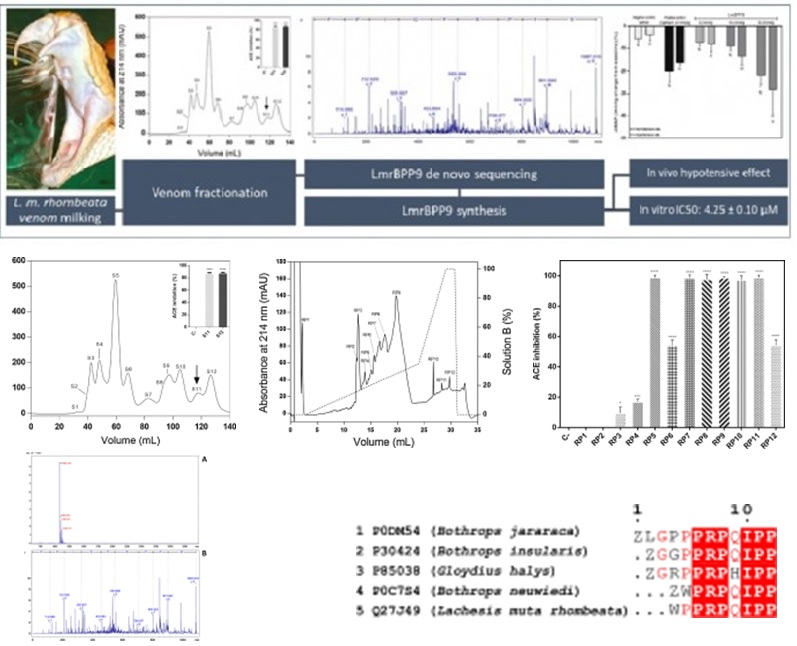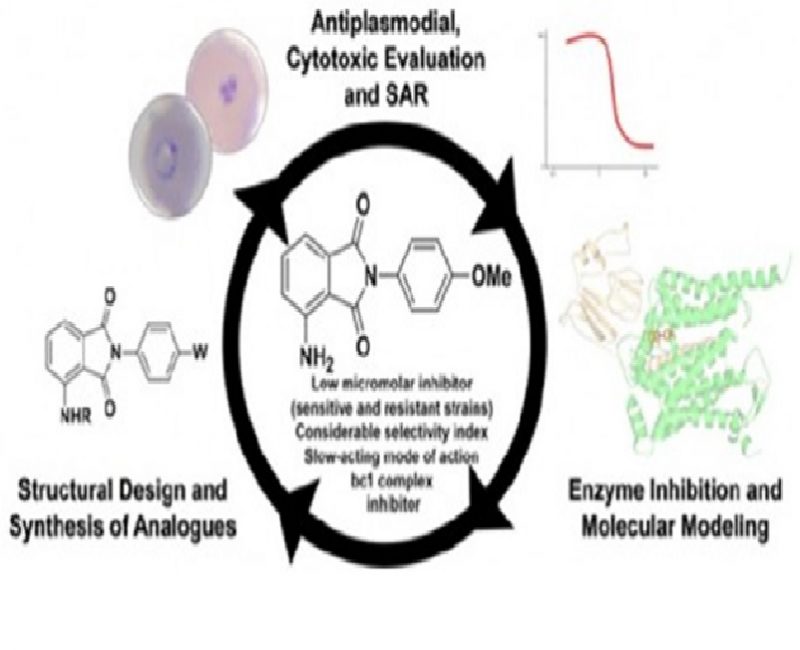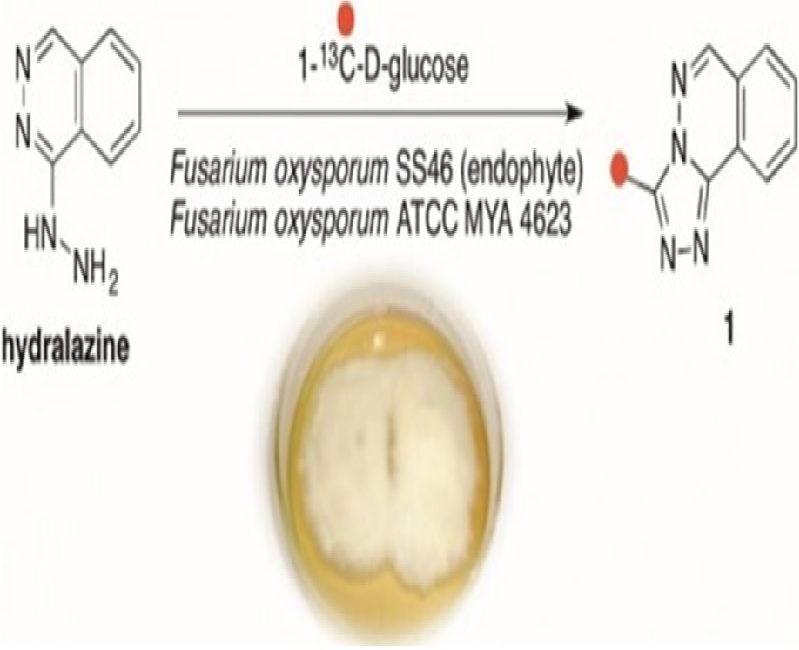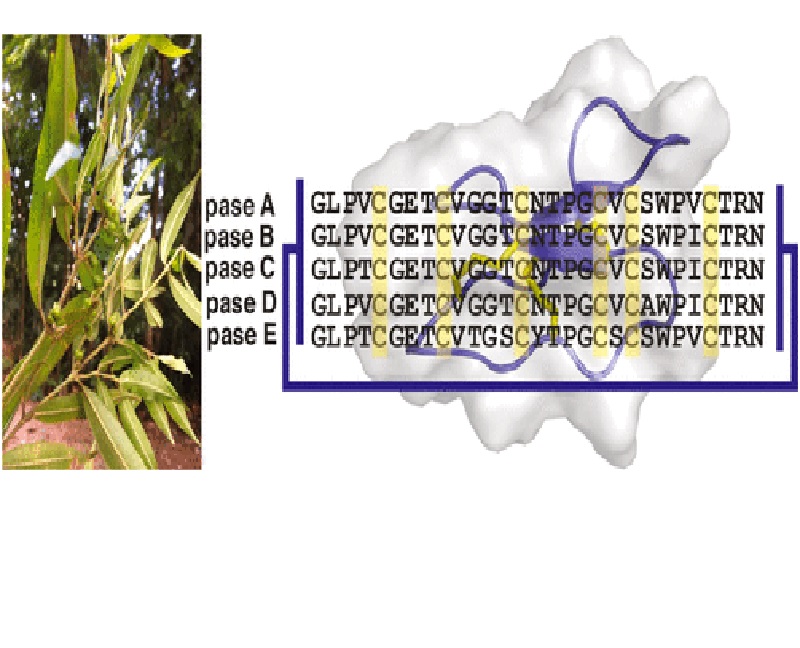
Authors:
Pinto, Meri Emili F. [1, 2] ; Chan, Lai Yue [2] ; Koehbach, Johannes [2] ; Devi, Seema [3] ; Grundemann, Carsten [4] ; Gruber, Christian W. [5] ; Gomes, Mario [6] ; Bolzani, Vanderlan S. [1] ; Cilli, Eduardo Maffud [1] ; Craik, David J. [2]
Abstract:
Cyclotides are plant-derived peptides found within five families of flowering plants (Violaceae, Rubiaceae, Fabaceae, Solanaceae, and Poaceae) that have a cyclic backbone and six conserved cysteine residues linked by disulfide bonds. Their presence within the Violaceae species seems ubiquitous, yet not all members of other families produce these macrocyclic peptides. The genus Palicourea Aubl. (Rubiaceae) contains hundreds of neotropical species of shrubs and small trees; however, only a few cyclotides have been discovered hitherto. Herein, five previously uncharacterized Möbius cyclotides within Palicourea sessilis and their pharmacological activities are described. Cyclotides were isolated from leaves and stems of this plant and identified as pase A–E, as well as the known peptide kalata S. Cyclotides were de novo sequenced by MALDI-TOF/TOF mass spectrometry, and their structures were solved by NMR spectroscopy. Because some cyclotides have been reported to modulate immune cells, pase A–D were assayed for cell proliferation of human primary activated T lymphocytes, and the results showed a dose-dependent antiproliferative function. The toxicity on other nonimmune cells was also assessed. This study reveals that pase cyclotides have potential for applications as immunosuppressants and in immune-related disorders.
1 Institute of Chemistry, São Paulo State University−UNESP, Araraquara, 14800-060 SP, Brazil
2 Institute for Molecular Bioscience, Australian Research Council Centre of Excellence for Innovations in Peptide and Protein Science, The University of Queensland, Brisbane, 4072 Queensland, Australia
3 Institute for Infection Prevention and Hospital Epidemiology, Center for Complementary Medicine, University of Freiburg, 79111 Freiburg, Germany
4 Translational Complementary Medicine, Department of Pharmaceutical Sciences, University of Basel, 4056 Basel, Switzerland
5 Center for Physiology and Pharmacology, Medical University of Vienna, 1090 Vienna, Austria
6 Rio de Janeiro Botanic Garden Research Institute−JBRJ, Rio de Janeiro, 22470-180 RJ, Brazil
Link to article: https://pubs.acs.org/doi/10.1021/acs.jnatprod.0c01069




